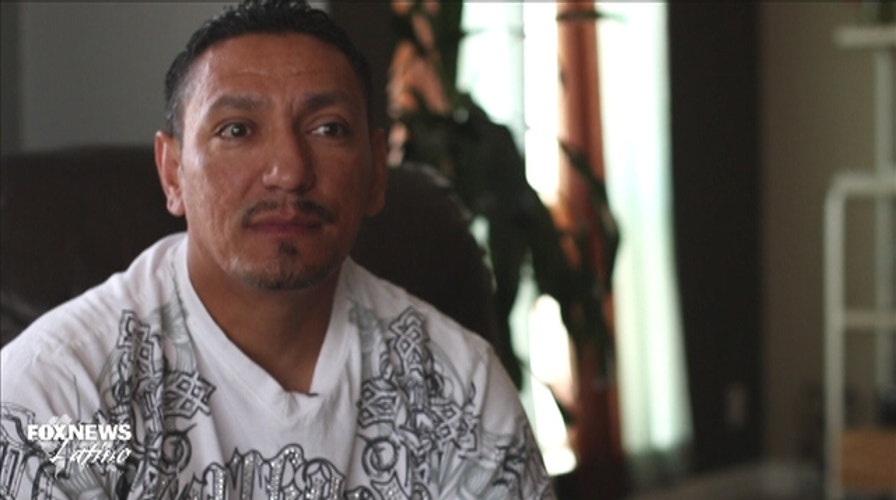Undocumented man's struggles test his family
Angel Farias has been deported twice and detained for months, but he hopes to remain in America with his family.
Angel Farias’ wife, two children and five siblings were born here in the United States. His mother and two other siblings are naturalized citizens. Angel came here in 1985 at age 7.
Like many undocumented immigrants, Angel’s family is a hodge-podge of those who have papers and those who don’t. And even Obama’s proposed Executive Order wouldn't change his status: Angel has been deported twice.
Both times, he walked across the Sonoran desert with a backpack of food and water so that he could return to his family.
Angel’s family migrated from Michoacán to Washington’s Yakima Valley, where he and his siblings often skipped school to help their parents harvest cherries and asparagus. After 30 years in Yakima, Angel was able to start his own business as a house painter. He talks and eats like an American. His son speaks better English than Spanish. Yakima is all he’s ever known.
But U.S. Immigration and Customs Enforcement agents came and found him. The last time was in 2014. He appealed his deportation, so he spent 14 months in the Northwest Detention Center in Tacoma, where he led a hunger strike and spent weeks in solitary confinement.
- A look at immigrant patients deported by hospitals
- Life After Deportation in Tijuana
- Overcrowded Conditions Of Undocumented Immigrants Held By U.S. Border Patrol
- Adult And Underage Central American Migrants Face Deportation And Other Dangers In Mexico
- Fearing deportation, undocumented Haitians wait in long lines
- Deportation shelved for 1-year-old Honduran boy
His detention impacted the Farias family’s fortunes drastically. Angel was the undocumented breadwinner for a family of American citizens. While he was away, they lost their house to foreclosure, and their credit was ruined. Unable to pay bills, Angel's wife struggled day-to-day to put food on the table.
By the time he was released on bond, Angel’s father had passed away and his wife had been diagnosed with colon cancer.
Many undocumented immigrants are like Farias – they’ve been in the country for decades, have U.S.-born children but are barred from any path to legal status.
Angel’s first deportation order was for a misdemeanor arrest on charges that were later dropped. The next two were for returning to the U.S. illegally.
Angel’s history bars him from obtaining family visas and, while he has relatives in Mexico with ties to violent crime, it also makes it highly unlikely he’ll be granted asylum here.
His life provides a glimpse on the emotional and financial impact that deportations and detentions can have on one American family.

